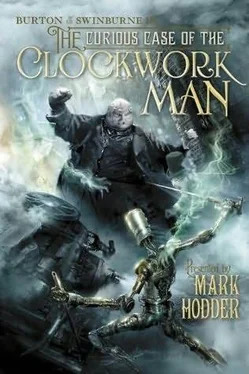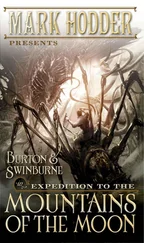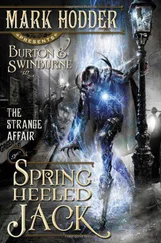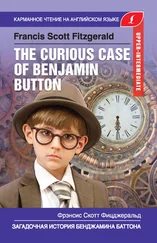Mark Hodder - The curious case of the Clockwork Man
Здесь есть возможность читать онлайн «Mark Hodder - The curious case of the Clockwork Man» весь текст электронной книги совершенно бесплатно (целиком полную версию без сокращений). В некоторых случаях можно слушать аудио, скачать через торрент в формате fb2 и присутствует краткое содержание. Жанр: Детективная фантастика, на английском языке. Описание произведения, (предисловие) а так же отзывы посетителей доступны на портале библиотеки ЛибКат.
- Название:The curious case of the Clockwork Man
- Автор:
- Жанр:
- Год:неизвестен
- ISBN:нет данных
- Рейтинг книги:3 / 5. Голосов: 1
-
Избранное:Добавить в избранное
- Отзывы:
-
Ваша оценка:
- 60
- 1
- 2
- 3
- 4
- 5
The curious case of the Clockwork Man: краткое содержание, описание и аннотация
Предлагаем к чтению аннотацию, описание, краткое содержание или предисловие (зависит от того, что написал сам автор книги «The curious case of the Clockwork Man»). Если вы не нашли необходимую информацию о книге — напишите в комментариях, мы постараемся отыскать её.
The curious case of the Clockwork Man — читать онлайн бесплатно полную книгу (весь текст) целиком
Ниже представлен текст книги, разбитый по страницам. Система сохранения места последней прочитанной страницы, позволяет с удобством читать онлайн бесплатно книгу «The curious case of the Clockwork Man», без необходимости каждый раз заново искать на чём Вы остановились. Поставьте закладку, и сможете в любой момент перейти на страницу, на которой закончили чтение.
Интервал:
Закладка:
“Really, Algy, you're the most incomprehensible poet I've ever met! But to answer the question you haven't managed to ask: no, I don't think the Steam Man has anything to do with the Tichborne case. However, I do suspect that whoever stole the diamonds from right under his mechanical nose might have some connection with the returning heir.”
“Ah ha! So there's a safe cracker among the Tichborne clan!”
“It's not impossible. All I know thus far is-”
Burton went on to recount the legends concerning the three Eyes of Naga. He then told the history of the Tichborne family.
“So you see,” he concluded, “I'm working on the premise that perhaps Sir Henry found the South American Eye-even though Henry Arundell pooh-poohs the suggestion-and that someone in or connected in some way with the family might now have possession of the Choir Stones, too.”
“Which just leaves the African diamond,” Swinburne commented.
“Indeed.”
“Which strikes me as peculiar.”
“Peculiar?”
“It gave rise to the Nile.”
“According to myth, yes. What are you getting at?”
“Just that you and Speke went hunting for the source of that river, then Henry Stanley did, and now his expedition has disappeared.”
Burton frowned. “His expedition has disappeared because he was stupid enough to fly over the region in these-” He rapped his knuckles against the side of his rotorchair. “Not a single flying machine that's entered the region has ever come out again. He knew that, but still he flew.”
“Yes, but that's not what I meant.”
“What, then?”
“Come into the house with me. Have a cigar. I want you to tell me a story.”
The king's agent considered his friend for a moment, then shrugged, nodded, put away his tools, and led Swinburne from the garage.
Minutes later, they were relaxing in the study.
Burton took a sip of port and said: “What do you want to know?”
“About your expedition with Speke. If I remember rightly, you reached Lake Tanganyika by March of ’58. What happened next?”
“Illness, mainly. We'd heard there was a port town named Ujiji on the eastern shore of the lake where we could establish a base camp, but when we got there we found that it consisted of nothing but a few decrepit beehive-shaped huts and a pitiful market-”
Captain Richard Francis Burton was blind.
Lieutenant John Hanning Speke's face had become paralysed down one side.
Both men were too weak to walk more than a few paces.
For two weeks, they rested in a half-derelict domed hut and ate the boiled rice brought to them by their guide, Sidi Bombay. They lay limply on their cots, crushed by the oppressive heat, and suffered and slept and moaned and vomited and lapsed in and out of consciousness.
“Mary, mother of God, is it worth it, Dick?” Speke whispered.
“It has to be. We're almost there, I'm sure of it. You heard what Bombay told me this morning.”
“No, I didn't. I was out of my mind with fever.”
“The locals claim a river flows northward out of the lake. If we can get a dhow onto her, I'm certain we'll find ourselves floating down the Nile, straight past the warring tribes, and all the way to Cairo.”
Burton clung on to that conviction and used it to slowly haul himself out of the pit of ill health. Infuriatingly, Speke, who was far less driven than his commanding officer, nevertheless made a much speedier recovery, and was soon strolling around during the short spells of cool morning and evening air, bathing in the lake, and shopping in the little market, where he would appear with a native holding an umbrella over him, with strings of trading beads slung over his arm, and with smoked-glass spectacles protecting his eyes.
He was a strange, restless, self-conscious man. Tall and thin, long-bearded and watery-eyed, hesitant in manner and stuttering in conversation, he only ever seemed at peace with himself when he was hunting.
Lieutenant Speke shot at everything. He put bullets into hippos and antelope, giraffes and lions, elephants and rhinos. He killed gleefully and indiscriminately, and had left a seven-hundred-mile-long trail of corpses all the way back to Zanzibar.
Even so, as the days dragged on in Ujiji, he became maddened by the shimmering landscape, the unending profusion of dried-out grass and trees, the hard, dusty, cracked earth.
“Brown! Nothing but blasted brown! Not a spot of green anywhere! I can't bear it. Even hunting is tedious in this damned hellhole. Can't we move on? I feel like I'm losing my mind!”
“Soon, John, but I need a little more time,” answered Burton, whose sight was still impaired, his legs still paralysed.
Speke groaned. “Will you at least permit me to take a canoe across the lake with Sidi Bombay? We know Sheikh Hamed is over there and he has a dhow. Maybe I can talk him into hiring it out to us? And he might know something about the northern river.”
“It's too dangerous. The rainy season is due. They say it causes violent storms on the water.”
Speke, though, became fixated upon the idea and eventually persuaded Burton to allow the excursion. He departed on the 3rd of March and was gone almost a month, during which time Burton dosed himself morning, noon, and night with Saltzmann's Tincture and gave himself up to what he would later describe as “ dreaming of things past, visioning things present. ”
By the time the lieutenant returned, Burton was feeling a little better. His ophthalmia had cleared and he was able to totter around unassisted.
“The river?” he asked, eagerly.
“It's called the Rusizi. Hamed gave me an absolute assurance that it flows out of the lake. The tribes in the region are friendly and will guide us to it.”
Burton punched a fist into the air. “Allah be praised! Did you secure the dhow?”
“He'll loan it to us three months from now at a cost of five hundred dollars.”
“What? That's ridiculous! Didn't you barter?”
“I lack the language skills, Dick.”
Burton seethed. What a waste of time and resources! Damn Speke's incompetence!
The lieutenant should have been mortified by his failure to get the dhow, yet he wasn't. Instead, his manner became odd, distant-almost furtive.
A few days later, he approached Burton and said: “I say, old chap, would you mind helping me to put my diaries into order? You know how confounded amateurish I am when it comes to writing.”
“Certainly,” answered Burton, and the two men settled at a makeshift table with Speke's journals open before them.
They went through the notebooks, and Burton pointed out where a more extensive description would be beneficial, where cross references could be inserted, and, very frequently, where spelling mistakes and grammatical errors required correction.
Then he turned a page and found a map sketched out.
“What's this?”
“It's the northern shore of the lake.”
“You mean this lake? Tanganyika?”
“Yes.”
“But John-what's this horseshoe of mountains in the north?”
“In my opinion, they're the Mountains of the Moon.”
“That's not possible. All the natives say the Mountains of the Moon are far away to the northeast of here.”
“Sheik Hamed's people say otherwise. They've been to the northern shore, in the shadow of that range.”
“And the Rusizi? Do you mean to suggest that it flows out of Tanganyika and up into the mountains?”
Speke shifted in his seat. “I don't know,” he muttered.
“Besides, if they're as big as legend suggests, surely we'd be able to see the distant peaks from here?”
“Maybe the land slopes down beyond the northern shore, so the peaks are actually below the horizon?”
Burton could barely believe his ears. What on earth was his companion babbling about?
Читать дальшеИнтервал:
Закладка:
Похожие книги на «The curious case of the Clockwork Man»
Представляем Вашему вниманию похожие книги на «The curious case of the Clockwork Man» списком для выбора. Мы отобрали схожую по названию и смыслу литературу в надежде предоставить читателям больше вариантов отыскать новые, интересные, ещё непрочитанные произведения.
Обсуждение, отзывы о книге «The curious case of the Clockwork Man» и просто собственные мнения читателей. Оставьте ваши комментарии, напишите, что Вы думаете о произведении, его смысле или главных героях. Укажите что конкретно понравилось, а что нет, и почему Вы так считаете.












